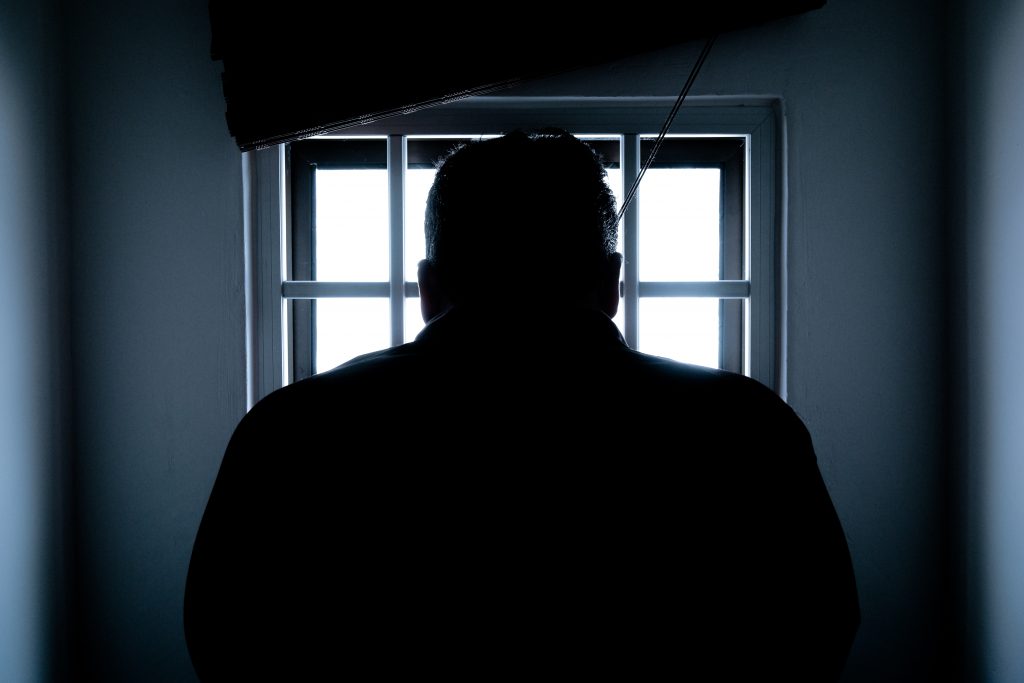 Navigating a lawsuit is a difficult task. Not only do you have to prove the merits of the case, but you also have to navigate the judicial system’s complex procedural requirements. Even if your case seems likely to succeed on the merits, failure to comply with procedural requirements can leave you without recourse.
Navigating a lawsuit is a difficult task. Not only do you have to prove the merits of the case, but you also have to navigate the judicial system’s complex procedural requirements. Even if your case seems likely to succeed on the merits, failure to comply with procedural requirements can leave you without recourse.
On March 22, 2001, the Meladines’ boat struck an unknown object submerged at Lake Hermitage while they were fishing in the early morning. In 2002, the Meladines sued six companies in a lawsuit for personal injuries. In the lawsuit, the Meladines alleged that the companies were the owners and/or operators of oil and gas platforms and pipelines located in the Lake Hermitage area. The Meladines alleged that their boat collided with what seemed to be an unmarked, old gas pipeline. They alleged that the defendants had failed to adequately mark or maintain the pipeline or warn of its potential harm. All six of the defendants denied having any ownership interest or control of the object that struck the plaintiffs’ boat.
Over the next three years, the plaintiffs dismissed the claims they had brought against all the defendants except Stone Energy and Chevron USA. In 2007, the plaintiffs added Jefferson Lake and Plaquemines Parish Government (“PPG”) as defendants. A year later, Jefferson Lake filed an exception of prescription because it had not been renamed as a defendant until over six years since the accident. Jefferson Lake also argued that prescription was inappropriate because there was no solidary liability between Jefferson Lake and any original defendants. The case then proceeded to trial.
 Louisiana Personal Injury Lawyer Blog
Louisiana Personal Injury Lawyer Blog


 Property owners have a responsibility to maintain safe conditions on their premises. However, if you are injured on someone’s property, there are still numerous elements you must prove in order to prevail on any lawsuit you may file for injuries arising from an unsafe premises. Establishing these elements can be especially challenging when you are injured from an activity that may be considered openly and obviously risky. This was this situation facing Mr. and Mrs. Marshall following Mrs. Marshall’s accident on an escalator at Jazz Casino in the Orleans Parish of Louisiana.
Property owners have a responsibility to maintain safe conditions on their premises. However, if you are injured on someone’s property, there are still numerous elements you must prove in order to prevail on any lawsuit you may file for injuries arising from an unsafe premises. Establishing these elements can be especially challenging when you are injured from an activity that may be considered openly and obviously risky. This was this situation facing Mr. and Mrs. Marshall following Mrs. Marshall’s accident on an escalator at Jazz Casino in the Orleans Parish of Louisiana.  Around 9am on Saturday, October 12 the Hard Rock Hotel partially collapsed over Canal Street in New Orleans after the top six to eight floors buckled onto the structure. According to New Orleans Fire Department Superintendent Tim McConnel, the remaining structure of the building remains unstable and could possibly collapse entirely. In response, nearby buildings have been evacuated as the two construction cranes are also unstable. Currently, one person has been reported dead, eighteen have been taking to the hospital in unspecified conditions, and two workers are still reported missing. In terms of the next steps to be taken, it is unknown just how long it will take crews to clean up the piles of debris and get the project back on schedule. This is particularly stressful for the city of New Orleans considering the site of the collapse is a major transportation hub for the city – consisting of bus and streetcar lines in addition to the major traffic arteries of the city. An accident such as the Hard Rock Hotel accident will impact much more upon closer inspection spanning to issues such a personal injury, workers compensation, wrongful death, and much more. Considering the complex litigation that can arise out of an incident such as this one it is important to have a good attorney at the ready.
Around 9am on Saturday, October 12 the Hard Rock Hotel partially collapsed over Canal Street in New Orleans after the top six to eight floors buckled onto the structure. According to New Orleans Fire Department Superintendent Tim McConnel, the remaining structure of the building remains unstable and could possibly collapse entirely. In response, nearby buildings have been evacuated as the two construction cranes are also unstable. Currently, one person has been reported dead, eighteen have been taking to the hospital in unspecified conditions, and two workers are still reported missing. In terms of the next steps to be taken, it is unknown just how long it will take crews to clean up the piles of debris and get the project back on schedule. This is particularly stressful for the city of New Orleans considering the site of the collapse is a major transportation hub for the city – consisting of bus and streetcar lines in addition to the major traffic arteries of the city. An accident such as the Hard Rock Hotel accident will impact much more upon closer inspection spanning to issues such a personal injury, workers compensation, wrongful death, and much more. Considering the complex litigation that can arise out of an incident such as this one it is important to have a good attorney at the ready. After a long and emotional lawsuit following the death of a loved one, the last thing you may want to do is to return to the courtroom. However, if you fail to appeal an award of inadequate damages, you could be leaving money on the table.
After a long and emotional lawsuit following the death of a loved one, the last thing you may want to do is to return to the courtroom. However, if you fail to appeal an award of inadequate damages, you could be leaving money on the table.  Opinions vary on the principles of trickle-down economics, but on December 15, 2015 the United States Court of Appeals for the Fifth Circuit issued an opinion which affirmed a lower court summary judgement decision for Northwestern State University to take down economics, along with one of its tenured professors.
Opinions vary on the principles of trickle-down economics, but on December 15, 2015 the United States Court of Appeals for the Fifth Circuit issued an opinion which affirmed a lower court summary judgement decision for Northwestern State University to take down economics, along with one of its tenured professors. When injuries happen at work, it is often challenging to determine who is liable for damages. The question of liability is especially tricky when prison inmates are injured in work release programs. Courts must grapple not only with the employer’s potential liability, but also with the potential liability of the supervising correctional authority. The Court of Appeal for the Third Circuit faced this issue in a lawsuit brought by an inmate injured on work release in Chopin.
When injuries happen at work, it is often challenging to determine who is liable for damages. The question of liability is especially tricky when prison inmates are injured in work release programs. Courts must grapple not only with the employer’s potential liability, but also with the potential liability of the supervising correctional authority. The Court of Appeal for the Third Circuit faced this issue in a lawsuit brought by an inmate injured on work release in Chopin. Can a used car dealer be held liable in a car accident if they failed to check the car purchaser’s license and insurance? According to the Third Circuit Court of Appeal of Louisiana, the answer is no. Ms. Mire purchased a used vehicle from Blake’s Auto Sales in Broussard, Louisiana. Ms. Mire was able to purchase the vehicle by presenting a valid state ID, but was not required to provide proof of insurance or a valid driver’s license. On July 2014, Ms. Mire allegedly caused a car accident that resulted in the death of Mr. Anthony who worked for the Iberia Public Works Department and was installing a sign on the shoulder of the roadway.
Can a used car dealer be held liable in a car accident if they failed to check the car purchaser’s license and insurance? According to the Third Circuit Court of Appeal of Louisiana, the answer is no. Ms. Mire purchased a used vehicle from Blake’s Auto Sales in Broussard, Louisiana. Ms. Mire was able to purchase the vehicle by presenting a valid state ID, but was not required to provide proof of insurance or a valid driver’s license. On July 2014, Ms. Mire allegedly caused a car accident that resulted in the death of Mr. Anthony who worked for the Iberia Public Works Department and was installing a sign on the shoulder of the roadway. When customers slip and fall at a store, they expect to be able to recover for their injuries. However, recovery can become complicated when multiple parties were involved in maintaining the premises, such as when the store outsources with another company to provide maintenance services at the store.
When customers slip and fall at a store, they expect to be able to recover for their injuries. However, recovery can become complicated when multiple parties were involved in maintaining the premises, such as when the store outsources with another company to provide maintenance services at the store.  A Mardi Gras Ball can be an exciting and fun event; however, when someone is injured, the mood turns from festive to fearful. If you were the one injured, from whom do you recover your damages? Can you even recover? If you are the organization, are you insured? Who will bear the cost associated with the injury? For an organization, having a strong insurance contract from the beginning can work to alleviate these concerns and many others.
A Mardi Gras Ball can be an exciting and fun event; however, when someone is injured, the mood turns from festive to fearful. If you were the one injured, from whom do you recover your damages? Can you even recover? If you are the organization, are you insured? Who will bear the cost associated with the injury? For an organization, having a strong insurance contract from the beginning can work to alleviate these concerns and many others.  Car accidents are always stressful, even if they are minor accidents and no one gets hurt. However, when you have multiple accidents within moments of each other and someone is seriously injured, or killed, things turn serious. And when things turn serious, you will want an experienced attorney at your side.
Car accidents are always stressful, even if they are minor accidents and no one gets hurt. However, when you have multiple accidents within moments of each other and someone is seriously injured, or killed, things turn serious. And when things turn serious, you will want an experienced attorney at your side.